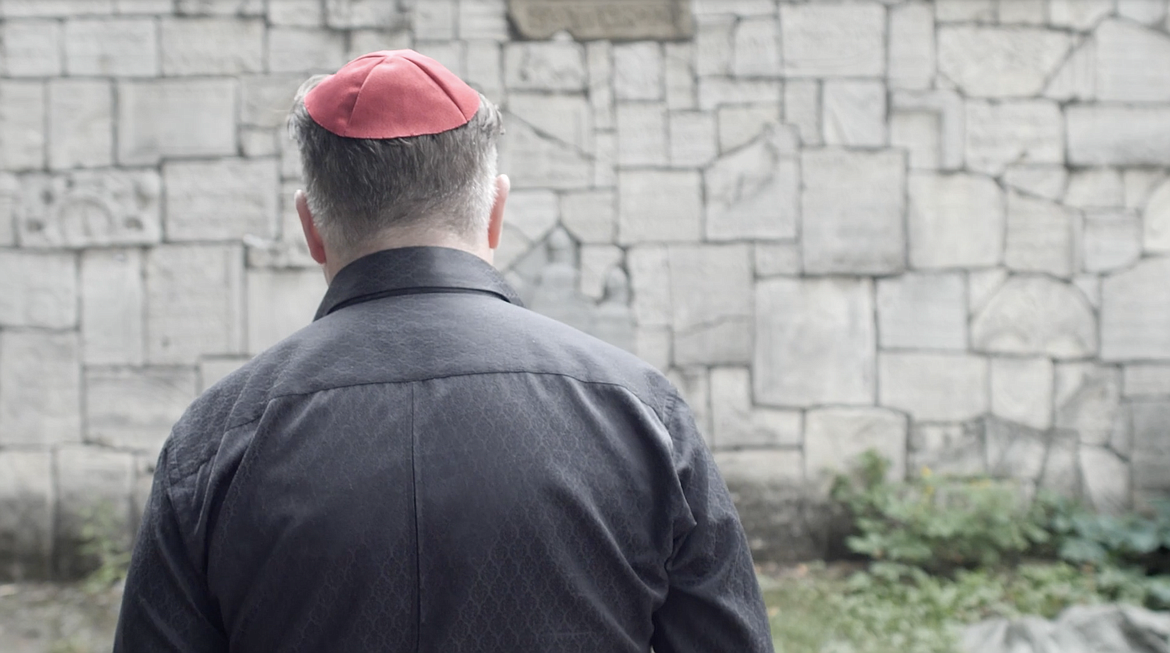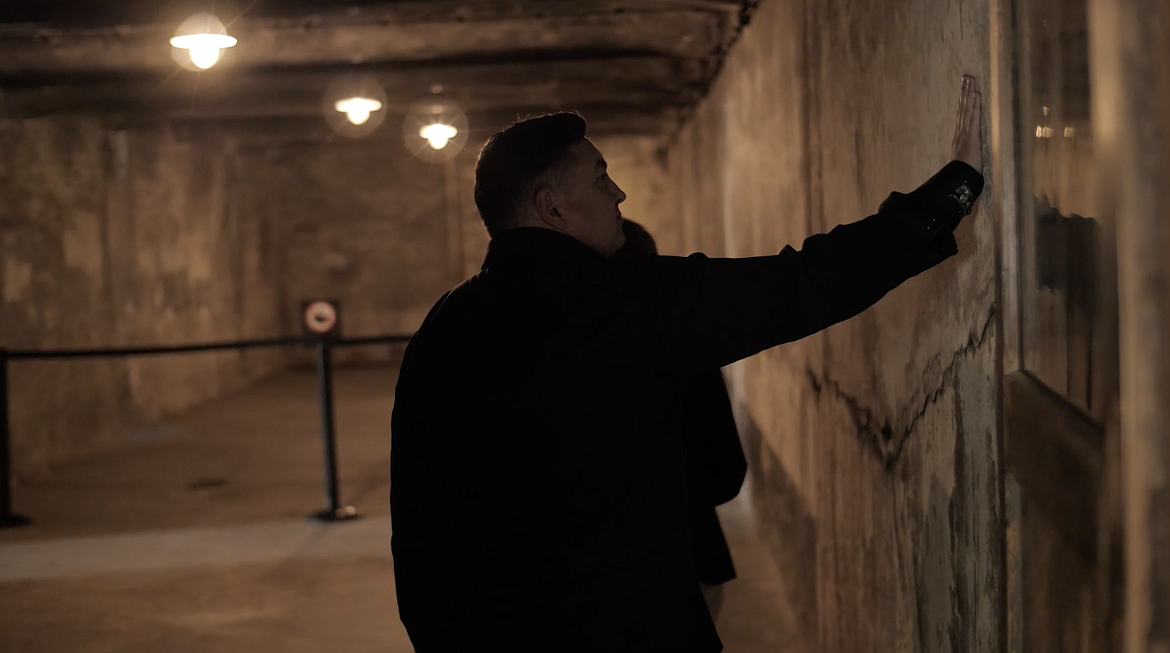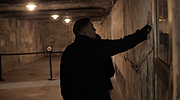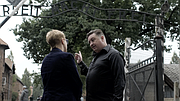'The Cure for Hate'
He had long wanted to visit Auschwitz, to make amends.
For 15 years, Tony McAleer was a hardened Neo-Nazi, a leader in the White Aryan Resistance. In the 1980s, he was active in everything from anti-immigrant activity to Holocaust denial to street violence. In the 1990s, publicity stunts and his operation of a white supremacist phone line brought him increasing notoriety.
A member of the Aryan Nations in Hayden Lake, McAleer was one of the first to weaponize the internet as a tool for recruitment and propaganda.
It would lead to his arrest for violation of the Canadian Human Rights Act of 1994.
That was then. That was who he used to be. It is not who he is now — or what he wants from his life.
"Nobody comes into the world hateful. Nobody's born a Neo-Nazi or a white supremacist," McAleer says at the beginning of a TED Talk speech he gave on his life and his descent into hate groups — and out of them. "So how does somebody end up in that world?"
McAleer tells of his life growing up in an affluent neighborhood, the son of a doctor. He tells of discovering his father, his idol, was having an affair and being filled with rage. He was 11.
His grades slipped, and he became defiant and rebellious. In high school, he came into contact with skinheads. They both terrified him and drew his interest.
He willingly followed in their path.
The greater the fear he caused, the more power he felt.
But then, when he was 25, he found himself in a delivery room holding his daughter. For the first time, he began making decisions with someone else in mind. His son's birth continued that thaw.
They gave him compassion.
It was the beginning, he said, of an evolution away from the Neo-Nazi movement and into a life of helping others escape its bonds. It would take years of soul-searching and therapy to understand why he had been attracted to white supremacy and to gain the tools to leave and to help others take those same steps.
He would go on to help found Life After Hate, a group dedicated to helping those wanting to leave hate groups, in 2011. He worked with law enforcement and spoke before the U.S. House Subcommittee on Civil Rights and Civil Liberties on how to confront the problem of white supremacy.
For a long time, McAleer wanted to go to Auschwitz to bear witness to the horrors of the Holocaust — and to atone for the hatred he'd once espoused and spread. It would be a way, he thought, to deepen his commitment to the work against racism and white nationalism. It would help him develop a more profound connection to those he'd once hurt.
It was time, he thought, to go to Auschwitz.
It was time for his journey of "tshuvah" — in the Jewish tradition, often described as a return to God and people that is made possible through repentance.
Enter filmmaker Peter Hutchison.
The two would film McAleer's journey and his effort to explore the conditions that led to fascism's rise in the 1930s. His goal was to shed light on how people get into, and escape from, violent extremist groups.
The result? "The Cure for Hate: Bearing Witness to Auschwitz."
McAleer and Hutchinson said they wanted the film to both tell the anti-hate activist's story — and serve as a cautionary tale today that underscores the dangers of allowing hate to be left unchecked.
He unabashedly shares his past and time in hate groups like the Aryan Nations. He also shares the compassion and grace that helped him leave extremism behind.
"I am really excited to share my journey and the history of the Holocaust with young people in a way that teaches important lessons to ensure it never happens again," said McAleer, now a certified life coach and anti-hate activist.
"Auschwitz has long loomed as a symbol of the legacy of the ideology I once espoused and the fear I may never fully atone for the damage I've done to the community I've harmed the most, the Jewish community," McAleer says in a voiceover as he's pictured walking down the railroad tracks leading to the concentration and death camp.
Hatred, division, and conflict dominate heads and fill social media, the pair said. That climate must serve as a wake-up call, both for those engaged in such behavior and for those who were convinced the dark days of the past were long past.
His act of atonement, McAleer hoped, could serve as both a warning to prevent others from following his path and an inspiration to reject hatred and extremism.
Several years in the making, Hutchinson said stories like McAleer's offer a powerful tool to combat hate, and can play a crucial role in helping to turn the tide of racism and intolerance.
"Tony McAleer’s journey stands as a remarkable example of what is possible," Hutchinson said. "After all, if a hardened neo-Nazi can find his way back from hate, then what lessons can it hold for the rest of us?"
McAleer and Hutchison filmed the anti-hate activist and author's journey of "tshuvah" to Auschwitz Birkenau. Screenings of the film kicked off a nationwide educational and social impact campaign designed to combat a growing number of hate crimes in the country.
The program debuted in Pittsburgh on Sept. 27, marking the first stop on a national educational and social impact campaign designed to combat a growing number of hate crimes in the country.
Among the stops of the documentary, "The Cure For Hate", is a showing today, Oct. 22, in Sandpoint.
The film will be shown at First Presbyterian Church, 417 N. Fourth Ave. Doors open at 5:30 p.m. and the film begins at 6. A question-and-answer session will follow, led by moderator Jim Healey.
All are welcome to attend this free event.
On Monday, a workshop is planned from 9 to 11 a.m. at the Sandpoint Library, 1407 Cedar, to talk about how to apply the lessons from the film — compassion, curiosity, and courage.
Information: thecureforhatefilm.com and lifeafterhate.org





